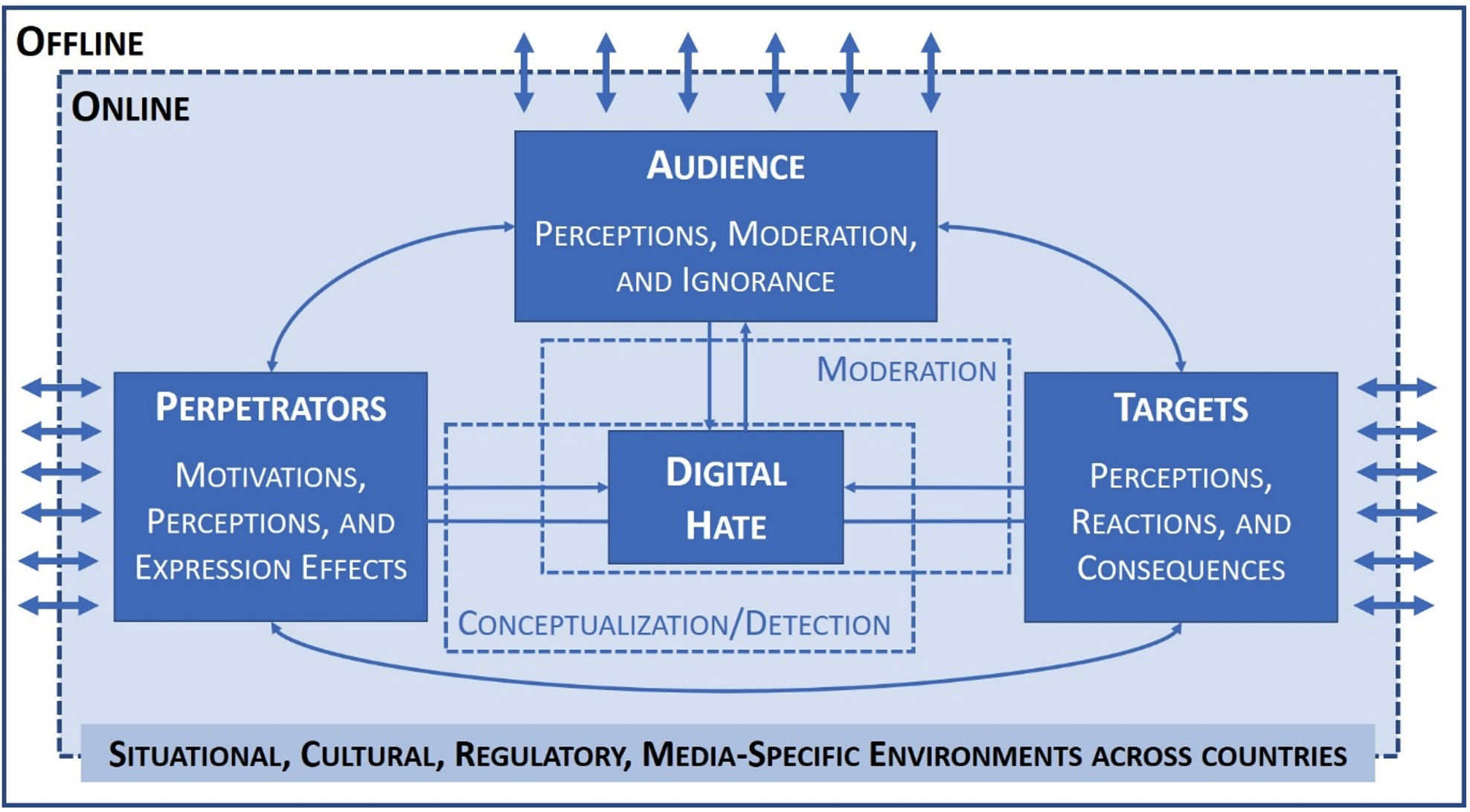Across many social media platforms, hateful content against people from both socially disadvantaged (e.g., women, Muslims) and privileged groups (e.g., politicians, journalists, academics) are commonplace and represent a pivotal challenge to societal cohesion. From a scientific standpoint, this digital hate constitutes a complex and dynamic structure, in which various involved actors (broadly and fluidly classified in perpetrators, bystanders, and targets) exhibit unique, yet partially interacting motivations, perceptions, and vulnerabilities. An approach to investigate digital hate thus needs to be multidisciplinary, methodologically versatile, and inclusive of different cultural settings in order to be appropriate. The ERC project Digital Hate: Perpetrators, Audiences, and (Dis)Empowered Targets (DIGIHATE) meets these requirements, examining how different kinds of digital hate emerge, get distributed, and affect others and determining what everyone can do about it.

Specifically, DIGIHATE involves 9 work packages forming a unique multidisciplinary, multi-language, mixed-method approach, including computational analysis, qualitative work, large comparative (panel) surveys, experiments, and a longitudinal measurement burst design in four countries (i.e., Austria, France, Hungary, and Sweden).
